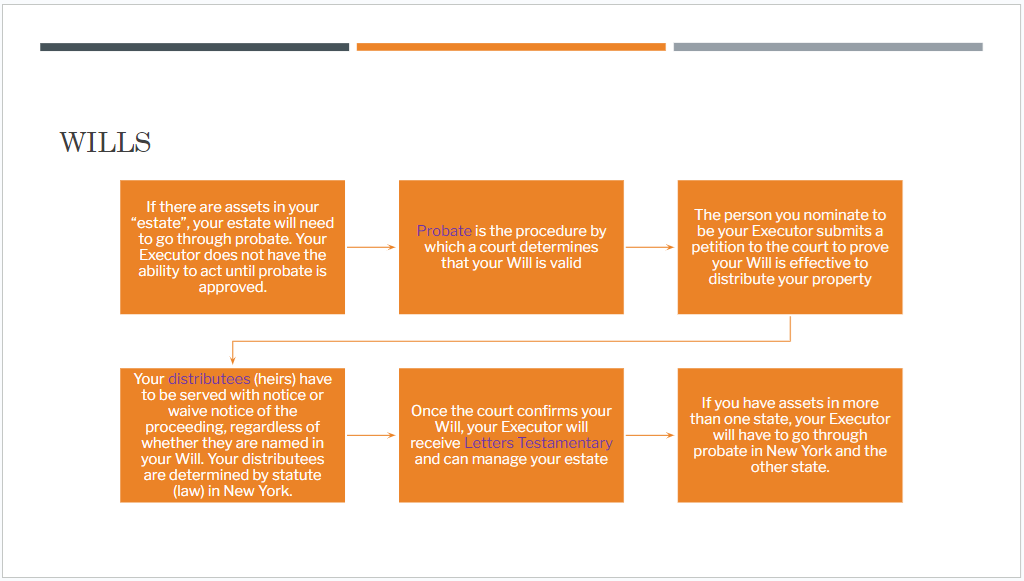Choosing the right person to serve as trustee of a special needs trust (SNT) is a key task when creating such a trust. It may also prove to be one of the most challenging. Trustees are responsible for the following:
- managing the day-to-day operations of the SNT,
- making distributions to the trust’s beneficiary,
- investing the trust’s assets, and
- paying the trust’s bills.
This, in turn, helps ensure that the special needs trust’s beneficiary remain eligible for public benefits programs.
The law is not particularly strict about who may serve as trustee. The trustee must be over 18 years of age and capable of managing their own affairs. They can be the child’s parent or other relative or a trusted friend. Or they can be a professional such as a lawyer, accountant, trust company, bank, or private professional fiduciary.
Here are five important questions to ask yourself when deciding on who should serve as a trustee for a special needs trust:
1. Is the potential trustee knowledgeable about public benefit programs?
It can prove crucial for a trustee of a special needs trust to be familiar with the different types of public benefit programs. They will be responsible for ensuring that the special needs trust beneficiary remains eligible for their public benefits.
Many government benefits like Medicaid, Supplemental Security Income (SSI), and Section 8 housing have complicated rules governing SNTs. The trustee of a special needs trust must know these rules well. Or they at least need to work closely with a special needs planner who can explain the consequences of their actions as trustee.
2. Does the trustee have time to carry out their duties?
Serving as the trustee of an active special needs trust can seem like a full-time job. Depending on the needs of the beneficiary, the trustee could indeed spend a good deal of time on any number of tasks. These may include the following:
- paying bills,
- monitoring government benefits,
- helping to secure housing,
- paying for medical care, and
- serving as a link between the beneficiary and a variety of service providers.
Sometimes, trustees find that they cannot perform all the necessary tasks in a timely manner. Or they feel they are sacrificing their family life or other professional obligations to fulfill their duties as a trustee. If this is the case, it may be time to look for a professional trustee.
3. Should you consider a professional trustee?
Professional trustees can be an attorney, accountant, trust company, investment firm, bank, or private professional fiduciary. With a professional serving as a trustee, you can rely on the expertise of that individual or institution. They will have a deep understanding of public benefits programs, investments, money management, and tax planning. Another advantage is that you may stand to gain some emotional distance. The disadvantage is that a professional trustee must be compensated, which will be a cost to the trust.
Sometimes, a beneficiary may have certain demands for trust distributions that can cause significant problems for family members. Again, having a professional trustee in place can help you avoid these kinds of family complications.
4. How comfortable are you giving control over the trust to an outsider?
Perhaps you feel uncomfortable with the idea of an outsider managing your loved one’s special needs trust. Keep in mind that it is possible to appoint a family member and an independent trustee as co-trustees. This way, you can rest assured that there is one trustee who is familiar with the beneficiary and has their best interests at heart. At the same time, the co-trustee can help carry out the tasks necessary to meet the public benefit programs’ requirements.
Another option is to appoint a trust protector. A trust protector has the powers to review accounts and to hire and fire trustees. In addition, a trust advisor can help instruct the trustee on the needs of the beneficiary.
5. Is a pooled trust an option?
A pooled trust may serve as a good option for some families. Nonprofit corporations administer these types of trusts, which pool together the resources of many beneficiaries. Pooling trust resources can reduce administrative fees and increase the total funds available for investment. These types of trusts also may permit beneficiaries access to better investment opportunities.
Because a pooled trust accepts contributions from many beneficiaries, the trust is able to make more stable investments. It also can provide additional management services that a conventional special needs trust might not be able to afford. If your loved one’s special needs trust is modest in size, it may benefit from the low costs of a pooled trust. Also appealing to many families is the fact that the nonprofits managing these trusts support others with special needs.
Consult With a Special Needs Planning Attorney
The Special Needs Attorneys at Kommer Bave & Ciccone are well-versed in the nuances that go into selecting a trustee of a special needs trust. Meet with our qualified special needs planners today to help you make the best plan for you and your family.
Attorney Advertising






